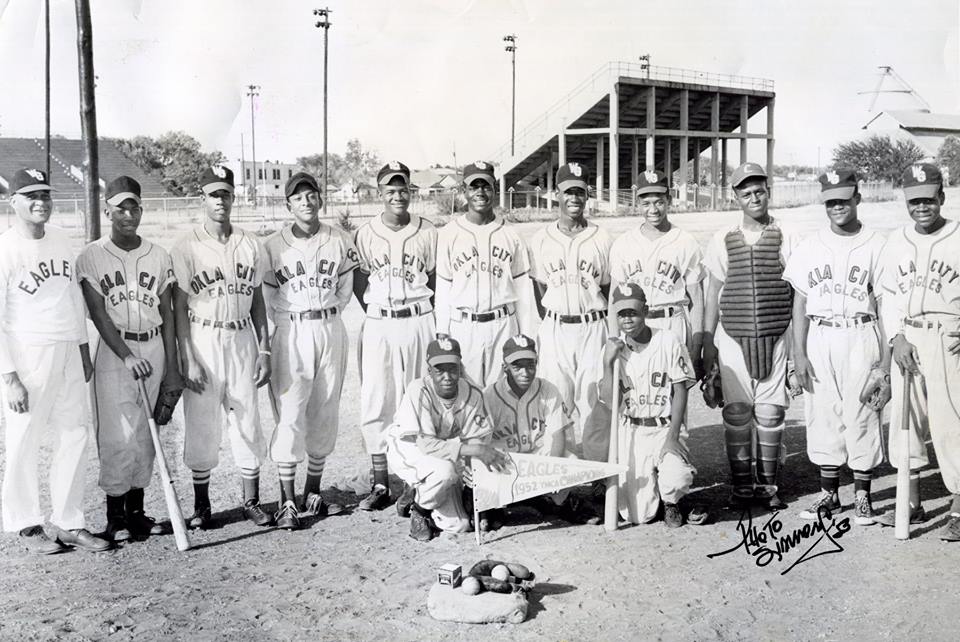
The Encyclopedia of Oklahoma History and Culture
BASEBALL, AFRICAN AMERICAN.
Most African Americans were historically excluded from playing baseball with their white brothers until Jackie Robinson broke the color barrier in the white major leagues in 1947. However, long before Robinson paved the way for African Americans to play baseball at all levels, "Blackball" was a source of great pride for African Americans in Oklahoma.
In Black high schools and in sandlot leagues young African Americans excelled on the diamond, often overcoming the influence of poorly maintained fields and improper equipment. An example is Willie Wells, who played for sandlot teams in Oklahoma City in his teenage years before becoming one of the best shortstops in the history of the Negro Leagues. In 1997 he joined the Baseball Hall of Fame.
Black minor-league clubs in Oklahoma, organized as early as 1910, served as an informal farm system for the Negro Leagues. Teams in Oklahoma City and Tulsa regularly sent star players to teams such as the Kansas City Monarchs. Wilber Joe "Bullet Joe" Rogan left his native Oklahoma City to play for the Monarchs and rivaled Satchel Paige as the best pitcher in the Negro Leagues in the 1930s. In 1998 Rogan was elected to the Baseball Hall of Fame.
Oklahoma franchises such as the Oklahoma Giants and the Tulsa Black Oilers had loyal fans. Games between Black teams drew huge crowds to baseball fields normally used by white teams. In 1929 the Douglass High School band led a parade to an Oklahoma City ballpark, and newspaper publisher Roscoe Dunjee threw out the first pitch to launch a new season for the Oklahoma City Black Indians.
The popularity of Blackball in Oklahoma began to decline during the Great Depression, because fans had no extra money for leisure activities. After Pres. Franklin Roosevelt's New Deal provided jobs for the needy, the Oklahoma City Black Indians regrouped and kept a sporadic schedule against All-Black teams such as the Tulsa Black Oilers, Guthrie Black Spiders, and Boley Wonders.
After World War II and Jackie Robinson's entry into the major leagues, the decline of Blackball came quickly. The last recorded Oklahoma Negro Leagues game was played at Tulsa's Oiler Park on June 5, 1962. However, Oklahoma continued to provide star African American players for the integrated major leagues. Henry "Hank" Thompson, an Oklahoma City native, was the first Black player for both the New York Giants and the St. Louis Browns. Willie Stargell, born at Earlsboro, was the two hundredth player inducted into the Baseball Hall of Fame. He is one of only a handful of men in baseball history to play for only one team for twenty seasons. Stargell died in 2001.
From Oklahoma City's Millwood High School came Joe Carter, who hit one of the most memorable home runs in World Series history. His ninth-inning homer won the 1993 World Series for the Toronto Blue Jays.






